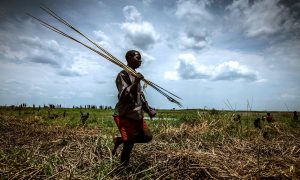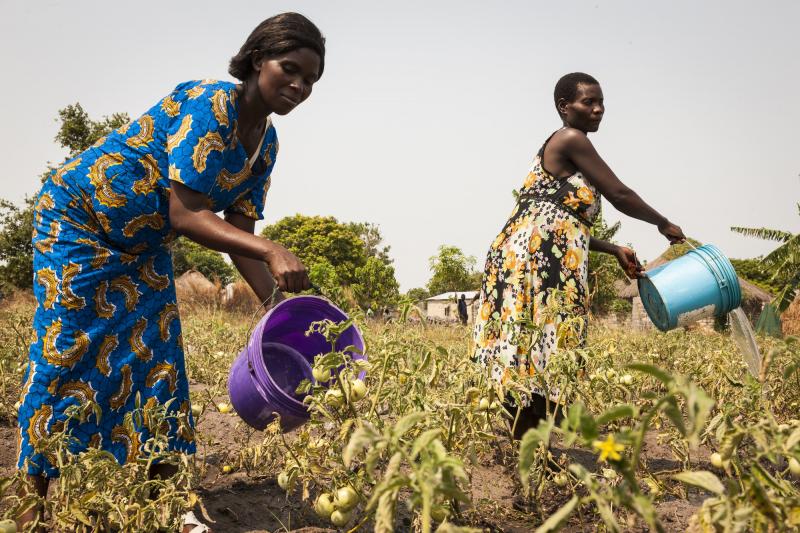Born in a small town of Mufulira, on the Copper Belt province of Zambia in 1960, Winnie Nachivula, is making a mark in the cassava production in Zambia which currently stands at over 1 million metric tonnes per year, making it the most important crop grown in Zambia after maize.

Cassava is grown by 35 percent of the small-scale farmers in Zambia, contributing to 38% of Zambia’s total human consumption requirements. It is a staple food for at least 30% of the population and a source of energy, proteins and vitamins A, B1, B2 and C.
Winnie who got her Physiotherapy diploma from Zambia ‘s Evelyn Hone College in 1982 and worked for government until 1988, now prides in not only farming cassava but adding value to the crop which is viewed by most urban Zambians as “food from the street”.
She found her desire to venture into, marketing, processing, packaging and supplying of local Zambian foods after she came back from the United Kingdom where she had worked from 2002 to 2012.
With an initial capital of 20 thousand Kwacha (about 2 thousand united states dollars), Winnie started growing her passion which she brands “Nazya foods”. One of the major foods that have advanced her brand is cassava.
She is now among the few that have penetrated the cassava market in Zambia and has engaged other women from different parts of the country to grow the crop. These women then then sell her both the leaves and the tuber which she supplies to one of the chain stores in Zambia.
Winnie says every two weeks she supplies 20 bags of 50 kilograms each of cassava flour and 300 bags of 400 grams each of cassava leaves to Game stores in Lusaka. In addition, she also has a contract to supply 200 kilograms of cassava floor across five Pick and Pay stores on a weekly basis in Lusaka.
“Even though I have a turnover of at least 193 thousand Kwacha every month (about 19 000 USD), I regret that accessing funding to expand my business is a challenge. I have never accessed any form of funding because of the conditionality tied to borrowing money,” she says.
She is proud that she has managed to bring a product viewed as “street food” to shops for middle class people. She however, feels she still needs to improve the packaging and presentation of the product.
“My dream is to run a purely local Zambian food store and also create a window for export. I know that by doing so, I will be empowering more women farmers and also creating employment for many youths at the same time contributing to food security in the country.”
Winnie is not the only one passionate about exploring the “gold” that cassava can offer.

